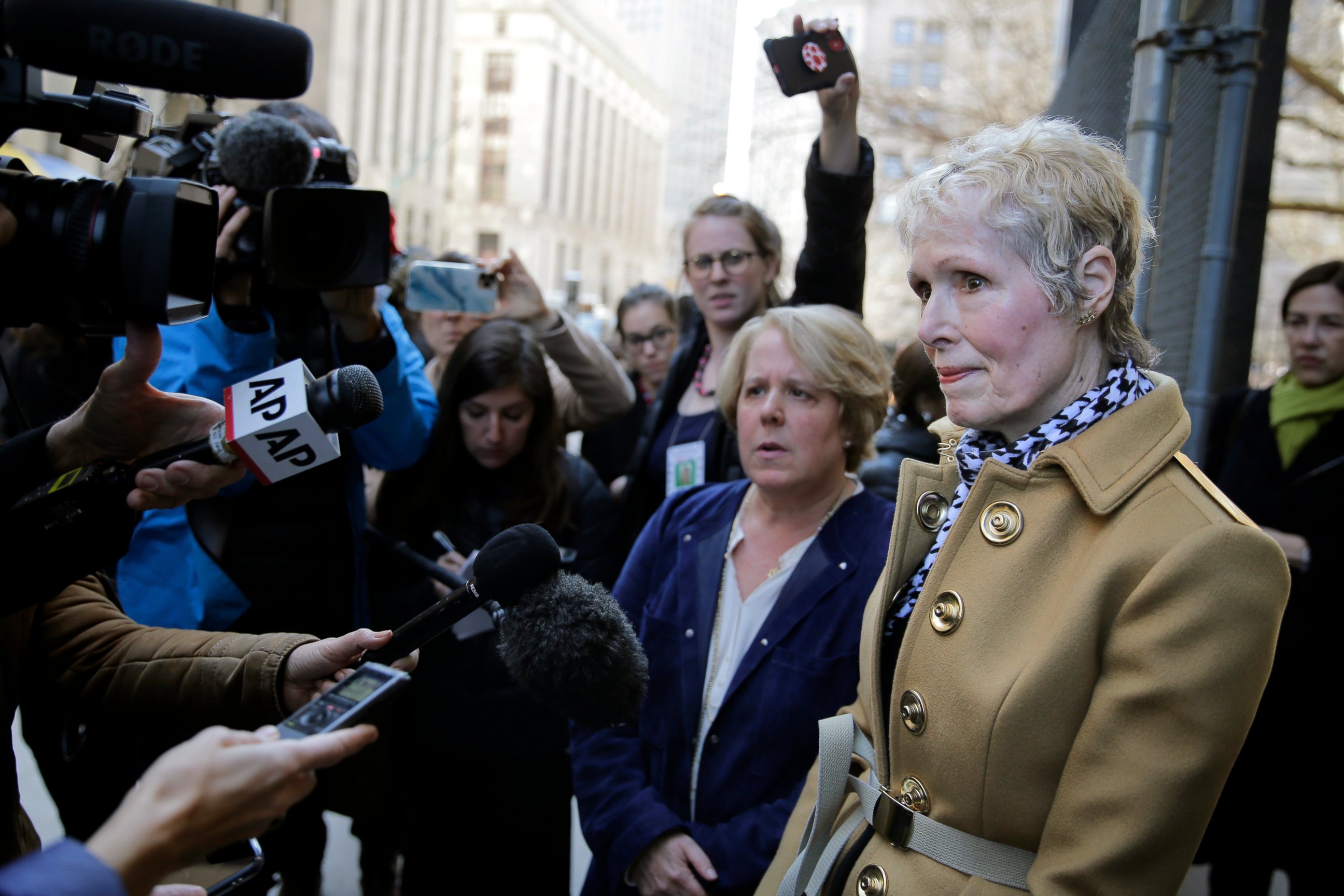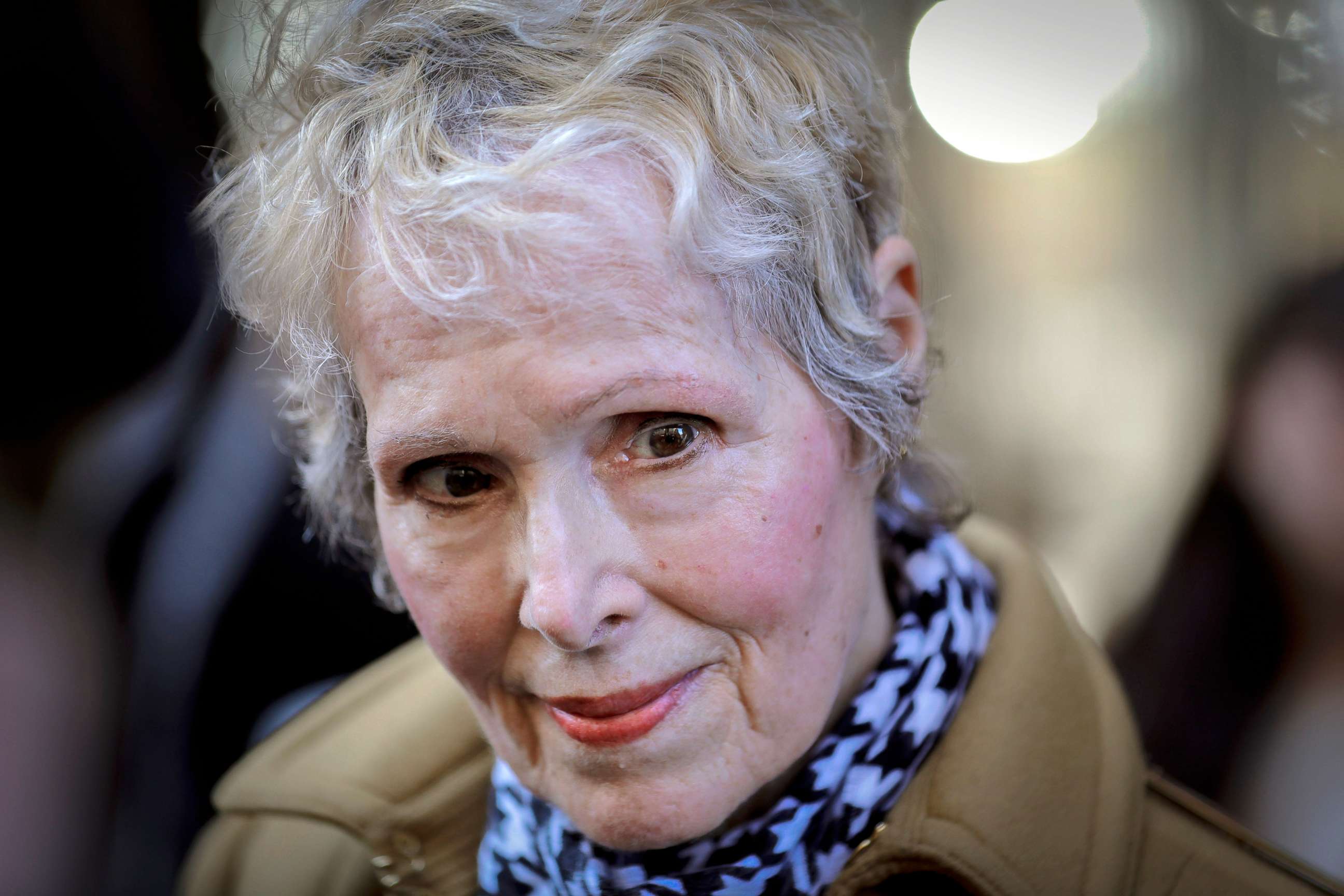Justice Department seeks to defend Trump in E. Jean Carroll defamation lawsuit
Last month, a New York judge denied the president's request to stay the lawsuit.
Attorney General William Barr on Wednesday defended the Justice Department's move to intervene in a defamation lawsuit filed by journalist E. Jean Carroll against President Donald Trump over his denial of her rape allegation.
Last year, Carroll sued the president, who has denied ever meeting her, for allegedly defaming her when he told media outlets she was lying. In a court filing Tuesday, the DOJ argued that Trump was "acting within the scope of his office" at the time. It is moving the court to substitute the United States for Trump as the defendant in the lawsuit.
Barr, calling the unusual effort "normal," dismissed concerns about putting American taxpayers on the hook for Trump's legal defense.
"This was a normal application of the law, the law is clear -- it is done frequently," Barr said, pointing to what he described as precedent for the DOJ intervening to protect federal employees in tort cases. "The little tempest that's going on is largely because of the bizarre political environment in which we live."
Citing the Westfall Act, which mandates that the Justice Department get involved in tort cases against government employees acting in their official capacity, Barr argued the law is "crystal clear" that such protections extend to the office of the president. He said because Trump made the comments that Carroll is suing him over during an exchange with the press, that means he was technically acting in his official capacity at the time of the alleged offense.
Michael Stern, a tort law expert, told ABC News the government likely has a winning argument. "I don't blame people for being surprised that the [Westfall Act] law is so broad that it covers things like this," Stern said. "The legal question becomes, was the statement -- because he's not being sued for the rape, he’s being sued for defaming Carroll based on denying the rape -- and that occurred while he was president."
Carroll's lawyer accused the president of enlisting the DOJ as a replacement for his private attorneys. "Trump's effort to wield the power of the U.S. government to evade responsibility for his private misconduct is without precedent, and shows even more starkly how far he is willing to go to prevent the truth from coming out," Roberta Kaplan said in a statement.
"Today's actions demonstrate that Trump will do everything possible, including using the full powers of the federal government, to block discovery from going forward in my case before the upcoming election to try to prevent a jury from ever deciding which one of us is lying," Carroll said in a statement.

Carroll, who served as an advice columnist at Elle magazine for over 20 years, claimed Trump sexually assaulted her in a Bergdorf Goodman dressing room in the 1990s in a New York Magazine article published in June 2019.
In a statement at the time, he said he never met her, adding, "She is trying to sell a new book -- that should indicate her motivation. It should be sold in the fiction section. Shame on those who make up false stories of assault to try to get publicity for themselves, or sell a book, or carry out a political agenda."
In November 2019, Carroll sued him for defamation, arguing he damaged her reputation and career -- she lost her job at Elle -- by denying her story and claiming she took money from political opponents to fabricate it.
Carroll's lawsuit alleged that "Trump knew that these statements were false; at a bare minimum, he acted with reckless disregard for their truth or falsity. Trump had recognized Carroll on sight at Bergdorf Goodman. He knew who she was when he raped her, and he knew who she was in 2019. He certainly knew that she was telling the truth."
In a June 2019 interview with The Hill shortly after the excerpt was published, the president said Carroll was "totally lying" and added, "I'll say it with great respect: No. 1, she's not my type. No. 2, it never happened. It never happened, OK?"
Carroll's lawsuit asserts these two statements, as well as a third made during the same time period, were false and defamatory.

Last month, a New York judge denied Trump's request to stay the defamation lawsuit.
Carroll has been writing a weekly column for The Atlantic in the lead-up to the election profiling other women who accused Trump of sexual assault, including Karena Virginia and Natasha Stoynoff. Trump has vehemently denied the women's accusations.
ABC News' Aaron Katersky, Alex Mallin and Alexandra Svokos contributed to this report.




